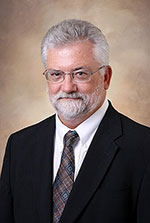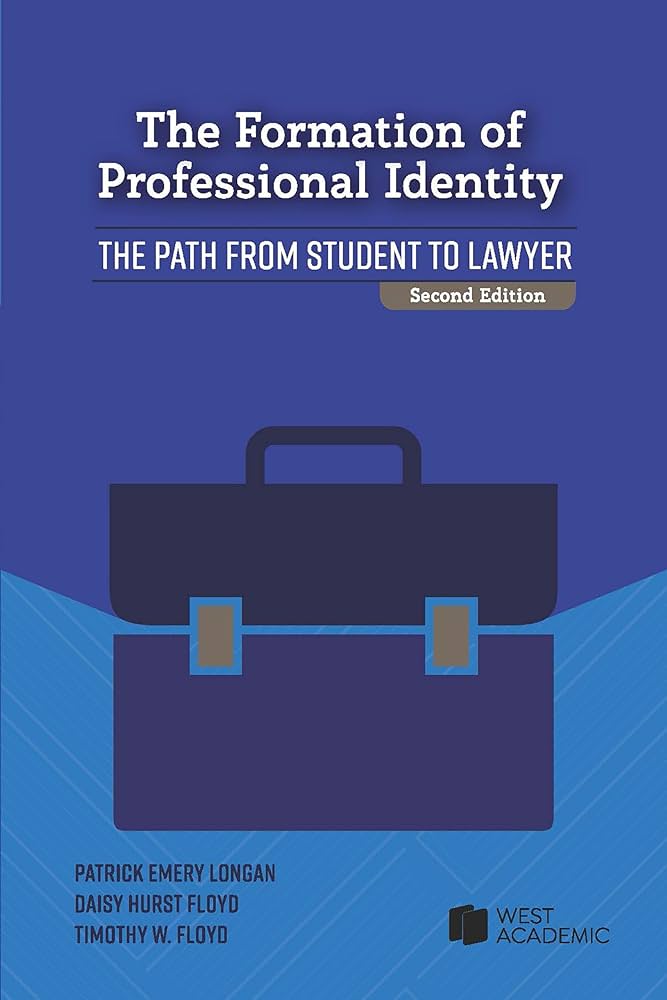By: Pat Longan, William Augustus Bootle Chair in Ethics and Professionalism
Director, Mercer Center for Legal Ethics and Professionalism
Mercer University School of Law
Daisy Hurst Floyd
University Professor of Law and Ethical Formation
Mercer University School of Law
Timothy W. Floyd
Tommy Malone Distinguished Chair in Trial Advocacy
Mercer University School of Law
West Academic Press recently published the second edition of our book, The Formation of Professional Identity: The Path from Student to Lawyer.
Our book is the product of over twenty years of experience teaching our required three-credit course on professional identity to Mercer’s first-year students. Our hope is that others can benefit from that experience, regardless of whether your efforts to help students develop their professional identities comes in a dedicated course, in a clinic, as part of another course such as professional responsibility, or in some other context.
We begin in Chapter 1 by defining professional identity as a lawyer’s deep sense of self as a lawyer. It is how a lawyer would complete an essay that begins, “I am the kind of lawyer who ….” We try to help the students understand that professional identity for lawyers is not just a matter of personal preference. As Interpretation 303-5 states, lawyers have special obligations to clients and to society, and “[t]he development of professional identity should involve an intentional exploration of the values, guiding principles, and well-being practices considered foundational to successful legal practice.” Internalizing those values is non-negotiable if the students are to fulfill their special obligations.
Our book presents professional identity formation as an exercise in virtue ethics. Chapter 2 explains that virtue ethics supposes there is an ideal to which one might strive. For example, we can imagine and describe the ideal doctor or the ideal teacher. Such descriptions inevitably include a list of virtues that a person should have and cultivate in order to approach that ideal. We then list for the students six virtues that need to be part of their professional identities as lawyers. We distilled these from the 100 or so professionalism codes and creeds that have been adopted around the country by courts and bar associations, as well as more recent work from Educating Tomorrow’s Lawyers. Those virtues are competence, fidelity to the client, fidelity to the law, public spiritedness, civility, and practical wisdom. These are the “values and guiding principles” foundational to the profession and therefore essential to the development of professional identity.
The book then deals with these six virtues one chapter at a time. In each chapter, we elaborate on what the virtue means for lawyers, describe the obstacles they will encounter in practice to the deployment of the virtue, and explore some strategies for overcoming those obstacles.
Each chapter includes discussion questions and problems that we have road-tested in our course. These can be used for class discussion, written reflections, or both. We typically use a problem for in-class discussion and then have the students write a reflection on the exercise afterwards. We are working on a teacher’s manual that will be available in PDF format to help anyone using the book know what to expect from these exercises. In the meantime, of course, we are available to you to share our experiences.
The last chapter in the book is about the connection between having the right kind of professional identity and well-being in the profession. Interpretation 303-5 states that professional identity includes the well-being practices that are foundational to success in the profession. Here we emphasize the connection between developing an internal commitment to the cultivation of the six virtues and the lessons of positive psychology about the conditions that support well-being in one’s life. We present the theoretical framework of Self-Determination Theory and the empirical findings of Larry Kreiger and Ken Sheldon to help the students understand that there is a happy convergence between the needs of others and their own well-being: the more they internalize and cultivate the special values of the profession, the more they will derive deep satisfaction from their work.
If anyone has any questions or comments about the book or how you might use it, please get in touch with any of us (longan_p@law.mercer.edu, floyd_dh@law.mercer.edu, or floyd_tw@law.mercer.edu).

Timothy Floyd is the Tommy Malone Distinguished Chair in Trial Advocacy and Director of Experiential Education

Daisy Floyd is the University Professor of Law and Ethical Formation and former Dean at Mercer University School of Law.

Patrick Longan
is the William Augustus Bootle Chair in Ethics and Professionalism in the Practice of Law at Mercer University School of Law
and is Director of the Mercer Center for Legal Ethics and Professionalism



